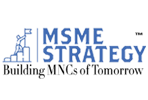10 Best Practices for Bookkeeping You Must Know
Bookkeeping is the backbone of financial management for small and medium-sized enterprises (SMEs). The art of bookkeeping must be mastered to avoid cash flow issues, make informed decisions, and comply with tax and regulatory requirements. This guide provides essential best practices to ensure your bookkeeping is up to standard, allowing your business to thrive.
Importance of Bookkeeping for SMEs
Bookkeeping is more than just tracking expenses and revenues. It serves as the foundation of your financial decision-making process. Here’s why it matters:
– Cash Flow Management: Accurate bookkeeping helps you monitor cash flow—one of the top reasons small businesses fail is cash flow mismanagement.
– Informed Decision-Making: With organized records, you can analyze trends, forecast future performance, and make data-driven business decisions.
– Tax Compliance: SMEs often face strict tax regulations. Maintaining proper books simplifies tax preparation and minimizes the risk of penalties.
– Budgeting and Planning: Bookkeeping enables effective budgeting, allowing SMEs to allocate resources efficiently and plan for expansion or unexpected downturns.
– Investor Confidence: Investors and banks require clear financial records to assess the viability of your business. Well-maintained books enhance credibility.
Best Practices for Bookkeeping for SMEs
- Separate Personal and Business Finances
A critical mistake for many SME owners is mixing personal and business finances. To avoid confusion, open a dedicated business bank account. This separation not only simplifies bookkeeping but also protects you in case of audits or legal disputes.
- Choose the Right Accounting Method
SMEs typically choose between two accounting methods: cash-based and accrual-based accounting.
– Cash-Based Accounting: Revenue and expenses are recorded when cash is exchanged. This is simple and gives a real-time snapshot of financial health.
– Accrual-Based Accounting: Transactions are recorded when they occur, even if payment has not been received or made. This method provides a more accurate long-term picture of your business’s financial status.
For growing businesses with complex operations, the accrual method is often the recommended choice, providing greater insight into profitability and cash flow management.
- Use Cloud-Based Accounting Software
Cloud-based accounting software, such as QuickBooks, Xero, or Zoho Books, can simplify bookkeeping tasks and automate data entry, reducing the likelihood of human error. These tools also allow real-time collaboration between you, your bookkeeper, and your accountant from anywhere in the world.
Key Features to Look for in Software:
– Automated invoicing and payment processing
– Integration with your bank accounts
– Expense tracking and reporting
– Payroll management
– Financial statement generation (income statement, balance sheet, cash flow statement)\
- Track All Expenses (No Matter How Small)
All expenses should be accounted for, from office supplies to business travel. Use digital tools or apps like Expensify or Shoeboxed to track receipts. Categorizing expenses properly ensures accurate financial reporting and deductions during tax filing.
- Automate Payroll
Managing payroll manually can lead to costly mistakes. Automating payroll ensures employees are paid accurately and on time, and helps you stay compliant with tax laws regarding employee benefits, taxes, and deductions.
- Reconcile Bank Statements Regularly
Reconciling your bank statements against your accounting records helps identify any discrepancies, missing transactions, or potential fraud. This should be done monthly to ensure your records are accurate.
- Outsource Where Necessary
As an SME owner, your time is limited. Outsourcing bookkeeping to experienced professionals allows you to focus on growing your business while ensuring that your financial records are accurate and up to date.
- Stay on Top of Tax Deadlines
Missing tax deadlines can result in hefty fines and penalties. Set up a calendar for important tax filing dates in your jurisdiction or use automated reminders within your accounting software. Additionally, consult tax professionals who understand local and international tax regulations, particularly if your business operates globally.
- Regularly Review Financial Reports
Don’t wait until year-end to review your financial statements. Analyze your income statements, balance sheets, and cash flow reports at least quarterly. Doing so allows you to catch potential issues early and make informed adjustments to your business strategy.
- Establish an Emergency Fund
Every business faces unexpected costs—whether it’s a sudden equipment breakdown or a global economic downturn. Having an emergency fund ensures your SME can weather such challenges without scrambling for cash.
- Understand Regulatory Requirements
SMEs operating across borders face a variety of regulations regarding taxes, payroll, and reporting. Stay updated on legal requirements in your market to avoid fines or penalties. For instance, European SMEs must comply with VAT requirements, while U.S.-based SMEs need to follow IRS tax regulations.
- Seek Professional Help
Professional bookkeeping services or consultants, such as MSME Strategy Consultants, can provide tailored advice, helping you navigate the complexities of financial management. Whether you’re just starting or looking to scale, an experienced advisor ensures you’re on the right path.
Effective bookkeeping is crucial for SMEs to maintain healthy cash flow, comply with tax regulations, and make informed decisions. By following these global best practices, SME owners can avoid costly financial mistakes, streamline their operations, and focus on growing their businesses.
Experienced consultants from MSME Strategy Consultants (msmestrategy.com) are ready to help you navigate the complexities of bookkeeping and financial management. Let us guide you toward better business practices and sustainable growth.
#MSMEStrategy #BookkeepingBestPractices #CashFlowManagement #SMEFinance #AccountingSoftware #TaxCompliance






